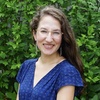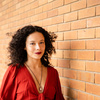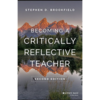Bok Seminars, short courses on topics in teaching, learning, and communication, are designed for GSAS PhD students at every stage. Our seminars are organized into categories based on target audience and topic: Foundations, Methods & Classroom Practice, Equity & Inclusion, Communication & Language, and Professional Development (for experienced TFs). View our accessibility statement. Bok Seminars are limited to GSAS PhD students and others at similar career stages engaged in the teaching of Harvard College undergraduates.
Bok Seminars
The Fall 2024 seminar lineup will be available on August 15, 2024.
| Seminar | Category | Schedule* | Location | Register |
|---|---|---|---|---|
| Foundations of Teaching in STEM |
FOUNDATIONS CORE** |
Thu, 9:45-11:45am, Sept. 14-Oct. 19 | 125 Mt. Auburn St. | Closed |
| Tools and Techniques for Leading Classroom Discussions |
METHODS |
Tue, 12:45-2:45pm, Sept. 12-Oct. 17 | 125 Mt. Auburn St. | Closed |
| Inclusive, Antiracist, or Decolonial: Exploring Power and Privilege in the Classroom | EQUITY | Wed, 12:45-2:45pm, Sept. 13-Oct. 18 | 125 Mt. Auburn St. | Closed |
| Engaging Audiences in Our Professional Stories | COMMUNICATION | Mon, 12:45-2:45pm, Sept. 18-Oct. 30 (no class Oct. 9) | 125 Mt. Auburn St. | Closed |
| Enhancing Fluency: Speaking and Listening for International TFs | COMMUNICATION | Mon/Wed, 9:00-10:15am, or Tue/Thu, 3:00-4:15pm ET, Sept. 11-Dec. 5 | 125 Mt. Auburn St. | Closed |
| Speak Up! Pronunciation for International TFs | COMMUNICATION | Fri, 9:45-11:45am, Sept. 15-Oct. 20 | Remote | Closed |
| Teaching and the Job Market: Getting from "TF" to "Colleague" | PROFESSIONAL DEVELOPMENT | Tue, 9:00-10:30am, Sept. 12-Oct. 17 | Remote | Closed |
| Seminar | Category | Schedule* | Location | Register |
|---|---|---|---|---|
| Preparing to Teach: A Seminar for New TFs |
FOUNDATIONS |
Tue/Thu/Fri, 1:00-3:00 pm, June 11-21 | 125 Mt. Auburn St. | Opens 5/1 |
| Problems and P-Sets: Creating and Teaching Questions in STEM |
METHODS CORE** |
Tue/Thu, 9:30-11:30 am, June 11-27 | 125 Mt. Auburn St. | Opens 5/1 |
| Teaching with Museum Collections Across Disciplines | METHODS | Tue/Wed, 10:00 am-12:00 pm, June 11-26 (No class June 19) | Harvard Art Museums | Opens 5/1 |
| Clarity and Coherence for International TFs | COMMUNICATION | Mon/Wed/Fri, 9:30-11:00 am, June 3-14 | Remote | Opens 5/1 |
| Syllabus Design | PROFESSIONAL DEVELOPMENT | Mon/Wed, 10:00 am-12:00 pm, June 10-26 (No class June 19) | Remote | Opens 5/1 |
| Teaching and the Job Market: Getting from "TF" to "Colleague" | PROFESSIONAL DEVELOPMENT | Tue, 9:30-11:00 am, June 11-July 16 | Remote | Opens 5/1 |
The Spring 2025 seminar lineup will be available on December 1, 2024.
| Seminar | Category | Schedule* | Location | Register |
|---|---|---|---|---|
| Preparing to Teach: A Seminar for New TFs |
FOUNDATIONS CORE** |
Tue/Thu, 9:45-11:45 am, Jan 30-Feb 15 | 125 Mt. Auburn St. | Cancelled |
| How Students Learn |
FOUNDATIONS |
Wed, 10:30 am-12:00 pm, Jan 31-Mar 6 | Remote | Closed |
| Taking Your Teaching to the Next Level: Practice, Feedback, & Reflection |
METHODS CORE** |
Tue, 9:45-11:45 am, Feb 6-Mar 5 | 125 Mt. Auburn St. | Closed |
| Community and Civic Engagement in the Classroom: A Seminar with the Mindich Program in Engaged Scholarship | METHODS | Wed, 12:45-2:45 pm, Jan 31-Mar 6 | Phillips Brooks House, Leighton Room | Closed |
| How to Teach Writing Assignments—And Design Your Own |
METHODS |
Tue, 3:00-5:00 pm, Jan 30-Mar 5 | 125 Mt. Auburn St. | Closed |
| Crafting a Diversity Statement: Reflecting on Your Values to Develop Your Practice | EQUITY | Wed, 9:45-11:45 am, Jan 31-Mar 6 | 125 Mt. Auburn St. | Closed |
| Classroom Communication Skills for International TFs |
COMMUNICATION CORE** |
Tue/Thu, 3:00-4:15 pm, Jan 30-Apr 23 | 125 Mt. Auburn St. | Closed |
| Public Speaking for International Teachers and Scholars | COMMUNICATION | Mon, 9:45-11:45 am, Jan 22-Mar 4 (no class Feb 19) | 125 Mt. Auburn St. | Closed |
| Syllabus Design | PROFESSIONAL DEVELOPMENT | Thu, 9:45-11:45 am, Feb 1-Mar 7 | Remote | Closed |
Bok Seminar Catalogue
Foundations
Foundations seminars provide an introduction to pedagogy and how students learn.
Foundations of Teaching in STEM (Fall)
CORE**
Led by Anza Mitchell
How do you cultivate the knowledge and skills necessary for effectively teaching collegiate science and engineering? Ideally you can make your classes as inspiring and empowering as the research you conduct in your lab, studio, or office by bringing the enthusiasm of discovery into your classroom. In this seminar, we will explore evidenced-based practices on teaching and learning in STEM (science, technology, engineering, and mathematics), and provide ample opportunity for you to practice applying this research to your own teaching. Key topics will include: identifying and writing student-centered learning goals, developing a variety of active learning exercises that facilitate student learning, discussing how to incorporate evidence-based teaching methods to create problem set and exam questions to inspire and measure learning, and fostering an inclusive classroom environment. This seminar is designed for STEM instructors at all levels, whether you are leading a section in a class as a TF or developing a class of your own.
How Students Learn (Spring, Summer)
CORE**
Led by Tamara Brenner and Anza Mitchell
What strategies—inside and outside of the classroom—help students retain information and apply their knowledge to new situations? In this seminar, we will explore how students learn, drawing on neuroscience, cognitive psychology, and educational research. We’ll examine topics including motivation, metacognition, growth mindset, and retrieval practice, and discuss how to apply this knowledge to our own teaching. Based on the science of how students learn, we’ll also identify some of the possible benefits and challenges of generative AI in teaching and learning. At the end of the seminar, each student will share a concept drawn from The ABC’s of How We Learn: 26 Scientifically Proven Approaches, How They Work, and When to Use Them by Schwartz, Tsang, and Blair. This seminar is designed for PhD students from all disciplines, with any level of teaching experience. Whether you are interested in small actions you might take in your section, or considering a course you’d like to design in the future, you will emerge with practical strategies to help improve student learning.
Preparing to Teach: A Seminar for New TFs (Spring, Summer, Fall)
CORE**
Led by Pamela Pollock and Rebecca Miller Brown
How do you prepare to be a Teaching Fellow? How do you plan a section? How do you know if students are learning? In this seminar, you will learn what you need to know to start teaching, explore resources available to you as you begin your teaching career, and build confidence in the process! Each session focuses on a particular component of teaching, from the first day of class, how students learn, lesson planning and inclusive teaching, to grading and feedback. This seminar is ideal for PhD students preparing to teach for the first time, or at the early stage of their teaching career, who would like more practice with and guidance on the fundamentals of pedagogy.
Methods & Classroom Practice
Methods & Classroom Practice seminars explore techniques to use in the classroom and offer opportuities to practice and get feedback on different components of teaching.
Community and Civic Engagement in the Classroom: A Seminar with the Mindich Program in Engaged Scholarship (Spring)
Led by Flavia Peréa, Director of the Mindich Program in Engaged Scholarship and Lecturer in Sociology, and Caitlin Schmid, Assistant Director of Engaged Scholarship, Harvard College, Center for Public Service and Engaged Scholarship
How can teaching and learning connect “the rich resources of the university to our most pressing social, civic, and ethical problems?” (Boyer, 1996). Engaged Scholarship is a field that encompasses both teaching and research, integrating community and civic engagement into academics with a focus on equity, reflection, reciprocity, and community collaboration. This seminar provides an introduction to the principles, ethics, approaches, and practices of community-engaged and public-facing academic collaborations. Topics will include: developing students’ relational skills inside and outside the classroom; scaffolding and troubleshooting project-based learning; building community- and public-facing activities and assignments; and teaching reflection as a practice. This seminar is designed for TFs from any discipline who are interested in building relationships inside and outside of academia and in asking the question: What is a University’s responsibility to its surrounding communities? This seminar is offered in collaboration with the Mindich Program in Engaged Scholarship.
How to Teach Writing Assignments—And Design Your Own (Spring)
CORE**
Led by Jonah Johnson
In the best learning experiences, feedback between students and instructors happens early and often. Many writing assignments, by contrast, only involve feedback “after the fact,” with the understanding that the feedback can only be implemented on the next assignment. In this seminar we’ll offer a better model for writing assignments, where feedback is ongoing and the writing is scaffolded, well-sequenced, and iterative. Using real-life models and evidence-based approaches to learning to write / writing to learn, we’ll unpack what “doing a writing assignment” means at every stage of the writing process: from creating a classroom that’s ready for feedback, to working with evidence and analysis, to conferencing, peer review, and revision. By the end of our seminar, you will design and get the chance to workshop your own assignment or assignment sequence. And yes: we’ll identify some of the possible roles and challenges of using AI for teaching with writing. This seminar is designed for new and experienced TFs across disciplines who want to explore assignment design, strategies for in-class teaching, and best practices for effective feedback.
Problems and P-Sets: Creating and Teaching Questions in STEM (Summer)
CORE**
Led by Anza Mitchell
Do you want to design problems that will help your students develop their critical thinking skills and understand your course content better? In this seminar, you will learn to develop learning objectives and craft problem sets and questions that both engage and challenge students. Through a combination of discussions and hands-on activities, we will explore the principles of problem design as well as best practices in running problem-based sections. We will practice and get feedback on teaching the problems that we create. This seminar is designed for PhD students in quantitative fields who are early in their teaching careers and want to learn more about how students learn and strategies to keep students engaged and learning.
Taking Your Teaching to the Next Level: Practice, Feedback, & Reflection (Spring)
CORE**
Led by Pamela Pollock and Rebecca Miller Brown
As scholars, we are always developing our research, but how do we think about learning and growing as a teacher? In this seminar, we will explore frameworks for teaching development to consider these questions and become more reflective and effective teachers. We will learn and explore ways to set teaching development goals and how we can judge our progress towards them. As part of this, we will consider different elements of feedback, how to read a classroom, and ways to develop your own teaching philosophy. You will conduct a peer observation, complete a video consultation, and draft a teaching statement, all of which satisfy requirements for the Bok Center Teaching Certificate. This seminar is designed for current instructors at all stages who are interested in becoming more reflective and intentional about their own teaching practice and development. Participants must be teaching in the spring term.
Teaching with Museum Collections Across Disciplines (Summer)
Led by Rebecca Miller Brown and Jen Thum, Assistant Director of Academic Engagement and Assistant Research Curator, Harvard Art Museums
Objects are valuable tools for instructors of any subject: they illustrate arguments, give tangible expression to ideas, and provide a means to engage with concepts in new and novel ways. But how can they be integrated most effectively in interdisciplinary classes? How can we teach students to “read” them? In this seminar we will explore and practice strategies for encouraging analytical reasoning, critical thinking, and observational skills through engagement with the Harvard Art Museums’ collections. By the end of this seminar, you will have created a catalog of objects to use in your teaching and deliver a short object-based lesson at the museums. This seminar is designed for new and experienced TFs from all disciplines and requires no prior experience in teaching with museum collections.
Tools and Techniques for Leading Classroom Discussions (Fall)
CORE**
Led by Rebecca Miller Brown
How can you lead an exciting discussion and keep participants engaged from beginning to end? Which strategies can you use to help you and your students achieve your discussion goals? This seminar offers a hands-on approach to leading discussions and encouraging student participation from all corners of your class. To that end, we will examine the pros and cons of various methods of how to start, structure, and conclude a discussion; strategize how to deal with moments of tension in the classroom; explore tools for conducting discussion asynchronously/outside of class to help you and your students prepare for discussions in the classroom; and take turns leading short simulated discussions followed by collaborative peer feedback. This seminar will be useful for building your confidence at leading discussions as a new TF as well as interrogating your methods and refining your skills as an experienced teacher.
Equity & Inclusion
Equity & Inclusion seminars explore various facets of Equity, Diversity, Inclusion, Belonging, and Justice, how to address them in the classroom, and how to think about them as part of your approach to teaching.
Crafting a Diversity Statement: Reflecting on Your Values to Develop Your Practice (Spring)
Led by Ashlie Sandoval-Lee
How can you approach writing a diversity statement, considering your discipline, personal experiences, and social identities? Though an increasing number of search committees ask for diversity statements, guidance about how to compose an effective statement—indeed, even about what they are and why they are valuable to institutions and candidates’ own professional development—remains scarce. In this seminar, we will explore our own beliefs and ideas, examine diversity statement samples and rubrics, as well as engage in inclusive and equitable teaching practices. We will consider ways your teaching, research, and service can advance the values you hold around equity, diversity, inclusion, and belonging. Over the course of the seminar, you will draft and workshop a component of the diversity statement each week with the goal of crafting a compelling diversity statement by the end. This seminar is designed to offer you a space to reflect on why equity, diversity, inclusion and belonging are valuable for your own professional development, whether you already have a draft of a diversity statement or have never written one.
Fostering a Sense of Belonging: An Equity, Diversity, Inclusion, Belonging, and Justice (EDIBJ) Reading Group (Summer)
Led by Ashlie Sandoval-Lee
Research has shown that students who feel that one of their instructors cares about them as a person during their time at college feel more excited about their coursework and experience improved well-being. Unfortunately, in a national survey, only about 27 percent of college graduates reported having had such a faculty member (Gallup Inc., and Purdue University, 2014 ). In this online reading group, we will consider strategies that instructors can use to cultivate supportive relationships with their students as well as build a community of care in the classroom, focusing on the following topics:
-
Understanding the foundations of belonging and trust
-
Designing a welcoming and accessible environment
-
Soliciting and responding to student feedback
-
Building trust during conflict
-
Developing a sense of disciplinary belonging through (un)grading
In the spirit of cultivating a sense of belonging amongst our own reading group members, in our first session we will get to know each other and finalize the format for our reading group discussions. We will be using the Bok Center’s Reading Guide on Equity, Diversity, Inclusion, Belonging, and Justice (EDIBJ) in the Classroom as the foundational resource for this seminar.
Inclusive, Antiracist, or Decolonial: Exploring Power and Privilege in the Classroom (Fall)
Led by Ashlie Sandoval-Lee
Inclusive, anti-racist, and decolonial pedagogies are not necessarily mutually exclusive frameworks, but their pedagogical approaches and theories can express different understandings of and approaches to addressing power and privilege, creating class community, acknowledging students’ social identities, and fostering student learning. In this seminar, through weekly readings and course discussions on case studies, syllabi statements, and class activities, we’ll explore key theories within and across these pedagogical frameworks, considering how they might support or challenge one another. This seminar is designed for students at all levels who want to explore how to define their own values around and approaches to advancing inclusion, equity, belonging, and justice in the classroom.
Mindful Approaches to Race in the Classroom (Summer)
Led by Ashlie Sandoval-Lee
How can you skillfully address race in the classroom, accounting for the multiple identities that students hold? How do you facilitate classroom discussions that center race without perpetuating racial harm? In this practice-based seminar, we’ll read articles from scholars working on the intersections of mindfulness and race and practice different mindfulness techniques. Drawing on scholarship and our own experiences, we’ll learn to craft learning scenarios that process hard moments instead of circumventing challenging discussions. We’ll explore how to emotionally scaffold activities and discussions and how to make mindfulness pedagogy inclusive. Through readings, discussions, and mindfulness practice, you will develop your own pedagogical approach to teaching with race in mind.
Communication & Language
Communication & Language seminars help students develop public speaking and communication skills for their roles as teachers and scholars. We also offer English language and intercultural communication seminars though our Professional Communication Program for International Teachers and Scholars.
Classroom Communication Skills for International TFs (Spring)
CORE**
Led by Sarah Emory
View flyer
This seminar is designed to help international graduate students develop the oral communication skills necessary to be successful in their graduate programs, with a particular emphasis on skills necessary for teaching in the Harvard classroom. Students will work on improving their oral English comprehensibility and accuracy, learn and practice general pedagogical strategies for teaching interactively, improve their impromptu speaking skills, and build their ability to interact effectively with undergraduates. The course is designed for students who have not yet met the GSAS Oral English Language Requirement as well as PhD students and instructors who want to work on their English speaking skills for teaching and academic communication. If you are interested in enrolling, please schedule a consultation with the instructor.
Clarity and Coherence for International TFs
Led by Sarah Emory
How can you become a more clear and organized communicator? Do you struggle to convey your ideas clearly, either while writing or speaking? In this seminar, we will consider typical classroom oral and written tasks and develop strategies to improve English grammar, fluency, and coherence. Through activities like writing summaries and emails, giving presentations, and sharing feedback, you will build awareness of your language choices and practice strategies to improve accuracy and comprehensibility. This seminar is designed for those who speak English as an additional language, but would be useful for anyone who would like to develop their clarity and coherence in English.
Engaging Audiences in our Professional Stories (Fall)
Led by Pamela Pollock
What makes communication engaging? How do you tell your story as both a teacher and a scholar in your field? As a PhD student, you are called upon to present yourself and your ideas in various modes and media, for a variety of different audiences, and you have to be able to do it both remotely AND in person! In this seminar, you will practice the basics of crafting and delivering a talk, develop skills to make your communication compelling for different audiences, adapt your delivery to online and in-person situations, and practice handling questions and other impromptu speaking situations. You will gain experience telling your professional stories in-person and on Zoom, and we will analyze how our speech and the strategies we use change based on the medium. This seminar is designed for advanced PhD students who want to be more confident and engaging teachers, or prepare for conference presentations, job interviews, and job talks.
Enhancing Fluency: Speaking and Listening for International TFs (Fall)
Led by Sarah Emory
Are you an international graduate student who is interested in developing oral communication skills to be more successful in your program? Do you need to strengthen your fluency to meet the GSAS Oral Proficiency Requirement? Designed as a prerequisite for our popular Classroom Communication Skills for International TFs seminar, this interactive seminar will help you work on expanding your vocabulary in English as well as honing listening strategies and impromptu speaking skills. Through practice both in and out of class, you will set goals, have ample opportunities to converse on various topics, and gain experience presenting in English. This seminar is a resource for you if you have not yet met the GSAS language requirement or if you are interested in building your English listening, fluency, vocabulary, grammar, and pronunciation skills. Interview required for course registration.
Intercultural Communication Skills for International PhD Students (Fall)
Led by Sarah Emory
How do our cultures inform how we communicate, how we learn, and how we teach? New international PhD students navigate communication at Harvard on multiple levels: as students, as scholars, and as future teachers. In this interactive seminar, we will explore how our cultural values influence our communication in a range of academic and classroom situations. You will have the opportunity to learn, practice, and get feedback on cross-cultural communication skills for Harvard classrooms and beyond, with sessions devoted to academic culture; small talk; participating in classes; email etiquette; the language of diversity, equity, inclusion and belonging; and giving and receiving feedback. The two final sessions will target professional storytelling and communicating your research, with a focus on public speaking and delivery. This seminar is designed for new PhD students who did their undergraduate education outside of the US, but is open to any new PhD students interested in developing intercultural competence and practicing communication skills. The full seminar is eight sessions; students are welcome to register and attend any or all sessions.
Public Speaking for International Teachers and Scholars (Spring)
Led by Sarah Emory
As a teacher and a scholar, you are called to speak in a variety of contexts, which can be daunting for anyone but may be even more complicated if you speak English as an additional language. What strategies can you use to make it easier for others to understand you and stay engaged in what you are saying? In this seminar, we will practice concrete strategies to improve public speaking skills across contexts, including classrooms, conferences, and a range of personal and professional interactions. By using presentation, pronunciation, and theater techniques, you will learn how to communicate confidently with any audience. This seminar is designed for those who speak English as an additional language, but would be helpful for anyone who would like to develop their public speaking skills.
Speak Up! Pronunciation for International TFs (Summer, Fall)
Led by Sarah Emory
As a non-native English speaking teacher or scholar, what strategies can you apply to improve your intelligibility when speaking English? What features of English pronunciation can you use to make it easy for others to follow you? This hands-on, interactive seminar is designed to help you assess your own pronunciation and provide focused practice on common issues that affect intelligibility. In each class we will complete exercises and activities that highlight different pronunciation features such as intonation, word and sentence stress, pausing, rhythm, linking, and emphasis. Through focused practice, you will develop awareness and confidence when communicating with others, whether in class, in conversations, or at conferences. This seminar is suitable for non-native English speakers of all levels and backgrounds.
Professional development
Professional development seminars target topics of interest to more experienced TFs, including course design and the job market.
Mentoring: How to Advise (and be Advised) (Spring)
Led by Adam Beaver
As a graduate student, poised at a relatively early stage of your academic career, you are accustomed to being on the receiving end of mentoring. You’ve probably developed a sense of the kinds of advice, interactions, and power dynamics that are helpful (as well as those that aren’t). Soon, if not already, the tables may turn, and you will be called upon to mentor others—whether a senior thesis advisee at Harvard, a group of undergraduates or graduate students in your first academic job, or the staff of a lab at a university or in private industry. How can you step back from your own experiences as an advisee and think about not only what worked (and didn’t work), but why it worked (or didn’t)? As you develop your own approach as an advisor, how can you make sure to create opportunities not only to give advice, but to receive feedback from those whom you advise? What do you owe to the people who look up to you, and what can you expect from them in return? In this seminar we’ll read accounts of academic advising, work through scenarios, and discuss our own experiences as both mentors and mentees to develop personalized models of the kinds of advisors (and advisees) we’d like to be.
Syllabus Design (Summer)
Led by Chloe Chapin
Do you need a sample syllabus for the job market? As you transition from Teaching Fellow to Instructor of Record, how do you shift from section planning to course design? In this seminar, we will explore student-centered learning techniques known as “backward design” to help you align your teaching interests with setting measurable student outcomes. In addition to introducing your students to what they need to know (the content of your course), you are also tasked with helping them develop as practitioners in your field (as critical and thoughtful readers, experiment designers, problem solvers, etc.). Backward design can help you articulate your teaching goals and objectives and decide on appropriate methods of instruction and assessment, including incorporating inclusive and equitable teaching practices. Over the course of the seminar, you will develop a new syllabus, including learning goals and class policies, a weekly class schedule, and a sample lesson plan. Participants must be experienced TFs (at least one semester of teaching) and have a course design project in mind.
Teaching and the Job Market: Getting From “TF” to “Colleague” (Summer, Fall)
Led by Adam Beaver
Are you on or near the job market? Enthused or concerned about the prospect of assembling a teaching portfolio, writing a syllabus, or giving a teaching demonstration? Wondering what, exactly, a “teaching philosophy” is, and how you get one? While Harvard hopefully has given you opportunities to practice and receive feedback on your teaching, it is often the case that your career as a TF is shaped by forces beyond your control: that is to say, that you’ve taught in courses, in modalities, and with assignments set by someone else, which may or may not reflect your own personality as an instructor. When you hit the job market, then, it’s natural to feel some anxiety about how to explain who you are as a teacher in a coherent and compelling way. Do you have enough experience? The right kind of experience? The answer, of course, is yes: yes, you do. The challenge is how to organize and communicate that experience in a way that will show a search committee not just what you have done, but also how much you’ve learned from it, and that you are likely to keep developing in the right direction as a colleague. In this seminar you will get intense, hands-on experience designing a teaching statement, a syllabus, a portfolio, and a teaching demo.
*CORE: Seminars tagged as "CORE" count for the core principles seminar requirement for the Bok Teaching Certificate.
Graduate Student News
Teaching Matters
Hear reflections on the value of the Bok Center, and of teaching, in our Teaching Matters gallery.
We are here for PhD students!
MEET WITH US about the best ways to use our programs and resources, depending on your teaching and professional development goals.
Hit the Ground Running
 Explore our Hit the Ground Running resource site, which includes self-study modules on the fundamentals of teaching, engaged communication, equitable and inclusive teaching, and more.
Explore our Hit the Ground Running resource site, which includes self-study modules on the fundamentals of teaching, engaged communication, equitable and inclusive teaching, and more.

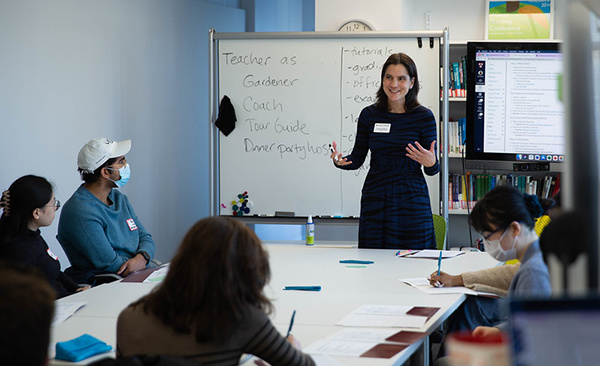 “I really enjoyed the supportive environment in the class here. I was very nervous about my first semester teaching, but this has been a very reassuring experience.”
“I really enjoyed the supportive environment in the class here. I was very nervous about my first semester teaching, but this has been a very reassuring experience.”
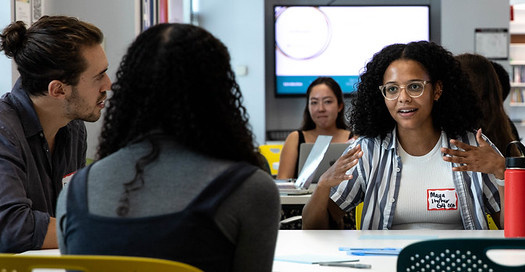 "What I found most effective about this seminar was its structure, which is something I hope to emulate in my own future teaching! I appreciated the clarity with which course content was presented, as well as the active learning activities that we completed as groups."
"What I found most effective about this seminar was its structure, which is something I hope to emulate in my own future teaching! I appreciated the clarity with which course content was presented, as well as the active learning activities that we completed as groups."
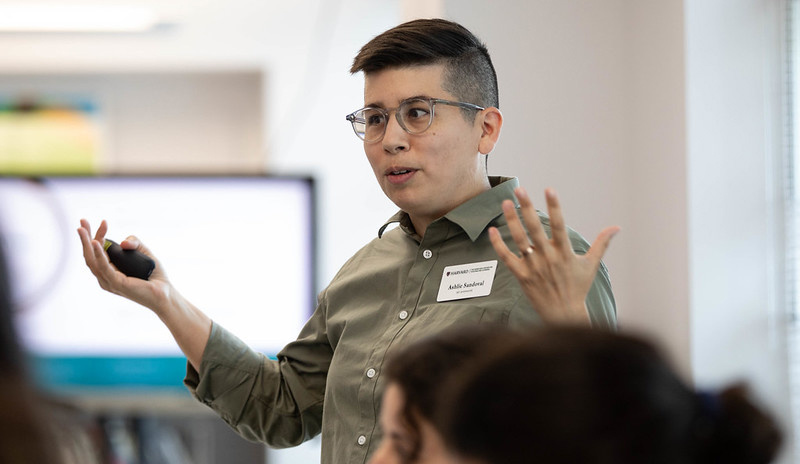 "The course was tremendously effective at building a thoughtful and engaged community of students committed to taking new perspectives and interrogating their teaching methods, especially as we strive to address systemic inequities in our society."
"The course was tremendously effective at building a thoughtful and engaged community of students committed to taking new perspectives and interrogating their teaching methods, especially as we strive to address systemic inequities in our society."
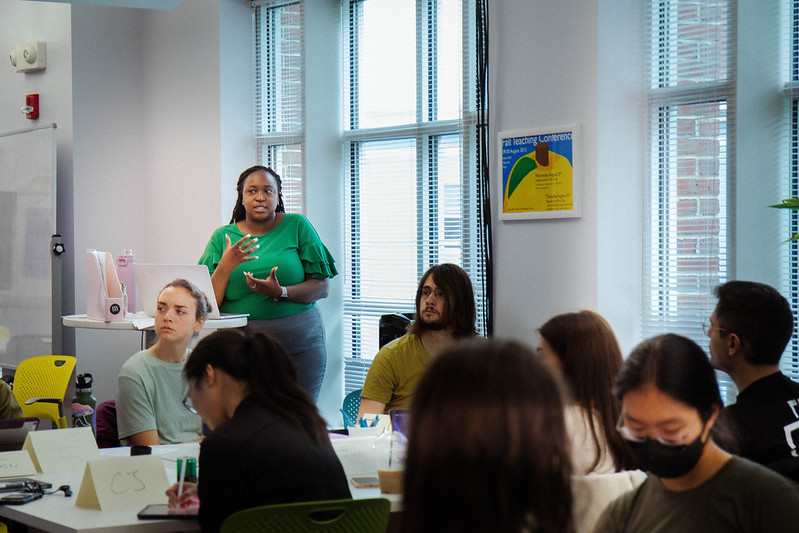 “I learned effective ways to create a p-set, while keeping in mind students’ needs, such as difficulty and Bloom’s taxonomy. I will use these problem design skills in the future!”
“I learned effective ways to create a p-set, while keeping in mind students’ needs, such as difficulty and Bloom’s taxonomy. I will use these problem design skills in the future!”
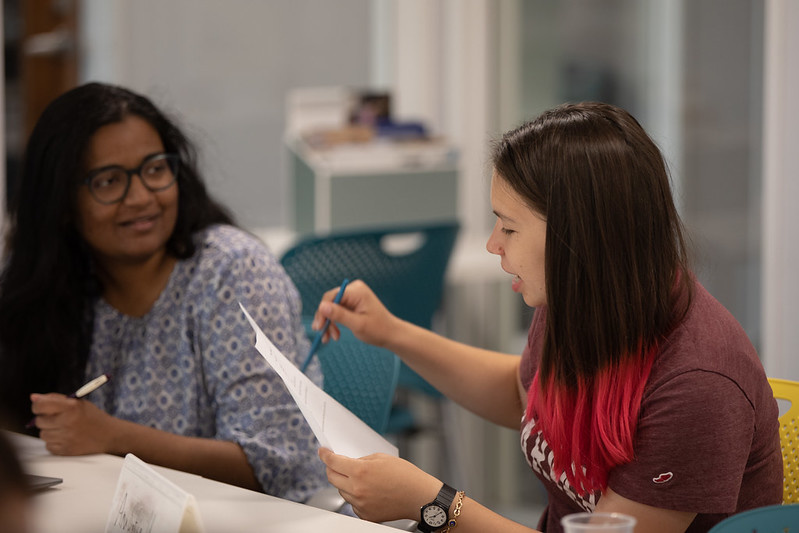 "The most effective thing about this seminar for me was to learn how to mediate discussions and navigate difficult moments. I feel more empowered for my own practice."
"The most effective thing about this seminar for me was to learn how to mediate discussions and navigate difficult moments. I feel more empowered for my own practice."
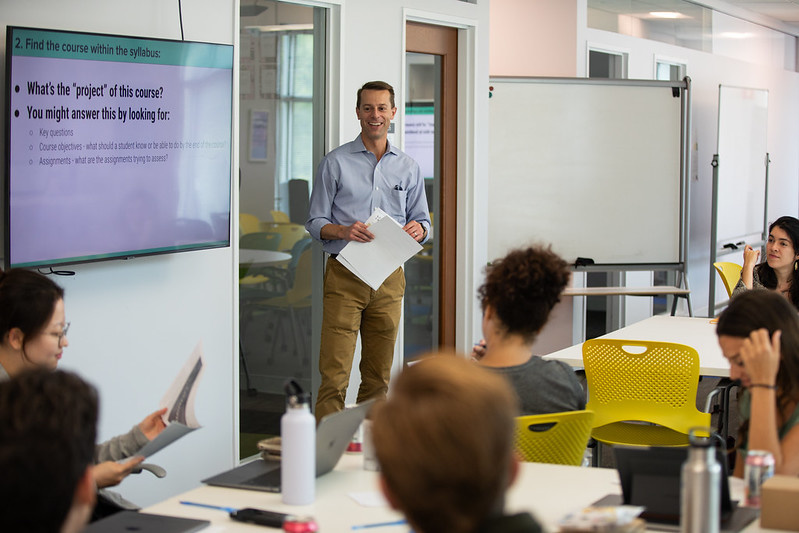 “The assignments and the templates were so well organized and laid out. I had no idea how I'd even begin to structure a teaching portfolio and now I have a whole drafted one!”
“The assignments and the templates were so well organized and laid out. I had no idea how I'd even begin to structure a teaching portfolio and now I have a whole drafted one!”

